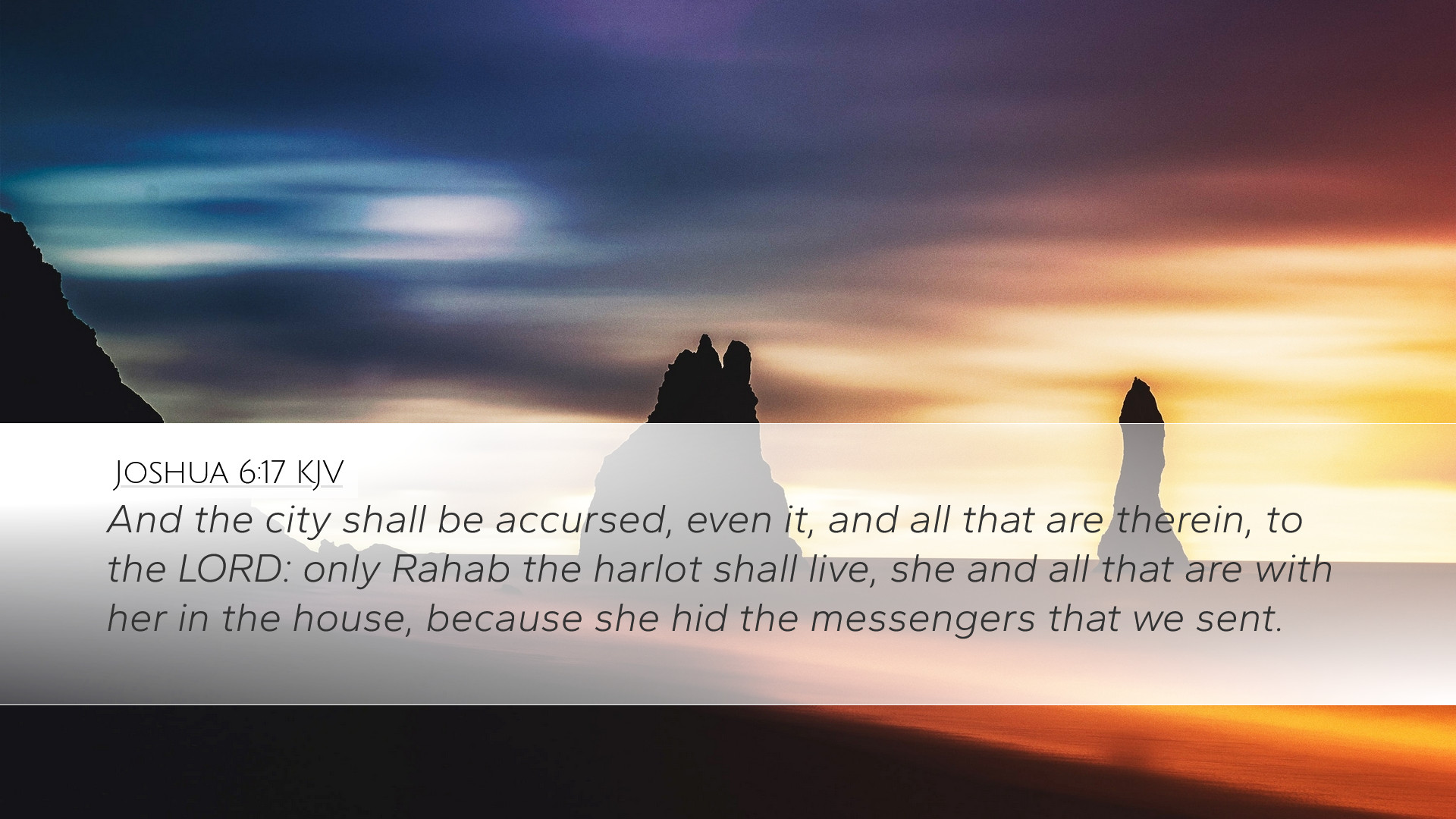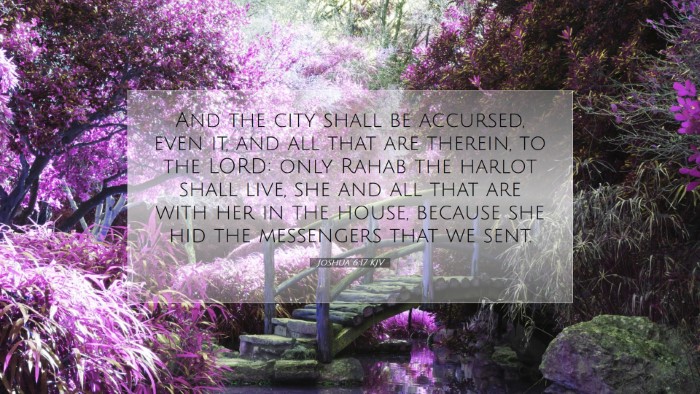Commentary on Joshua 6:17
Joshua 6:17 states:
"And the city shall be accursed, even it, and all that are therein, to the Lord: only Rahab the harlot shall live, she and all that are with her in the house, because she hid the messengers that we sent." (KJV)
Contextual Overview
This verse is situated in the narrative of the conquest of Jericho, a pivotal moment in Israel's entry into the Promised Land. It follows the unusual strategy God gave Joshua for taking the city, which included marching around it for six days and then shouting on the seventh day. The emphasis in this verse lies on the fate of the city of Jericho and its inhabitants contrasted with that of Rahab.
Significance of the Accursed City
Matthew Henry notes that the term "accursed" implies banishment from God’s covenant and a complete destruction of all that defiles the purity of His people. This judgment is indicative of the divine commandment regarding nations that had filled their cup of iniquity. The total destruction, save for Rahab and her household, is a strong assertion of God's righteous judgment.
Albert Barnes emphasizes the gravity of God’s commandments. The destruction of Jericho signifies a clear delineation of divine justice against sinfulness. It reflects how God purges the land from its abominations to establish Israel as a holy nation before Him. The totality of the destruction serves to deter Israel from adopting the corrupt practices of the Canaanites.
Rahab's Deliverance
The highlight of this passage is the salvation of Rahab. Adam Clarke expounds that Rahab’s faith and actions in assisting the Israelite spies serve as a powerful exemplar of divine mercy. Her courage to protect God’s messengers places her in stark contrast with the people of Jericho, who chose to reject God’s purpose.
- Faith and Action: Rahab's faith was evidenced by her actions. She recognized the authority of the God of Israel, demonstrating that faith is not merely intellectual assent but is manifest in deeds.
- Inclusion in Salvation: The inclusion of a Canaanite woman—labelled as a harlot—into the redemptive narrative of Israel signifies that salvation through faith is available to all, irrespective of their past. This theme resonates in the New Testament as well.
Theological Implications
This verse provokes significant theological reflections concerning judgment, mercy, and redemption. The judgment upon Jericho serves as a warning against the consequences of sin. Matthew Henry comments that God's patience has limits, and when it is full, His judgment is certain.
Conversely, Rahab’s deliverance accentuates God’s sovereignty and mercy towards those who believe. Albert Barnes notes that God's mercy can triumph over judgment when there is genuine repentance and faith. Rahab's story serves as a testament to the redemptive potential encapsulated in belief.
Lessons for Modern Believers
- Call to Righteousness: Believers are called to live righteously and separate from practices that lead to sin, mirroring the judgment on Jericho.
- Faith in Action: Like Rahab, believers are encouraged to act on their faith, demonstrating trust in God through tangible actions.
- Hope in Redemption: No one is beyond the reach of God's mercy. Rahab stands as a reminder that God’s grace can redeem even the most unlikely of candidates.
Conclusion
Joshua 6:17 is more than a historical account of Israel's conquest; it encapsulates fundamental truths about God's holiness, justice, and mercy. Through the destruction of Jericho and the rescue of Rahab, we are reminded of the dire consequences of sin juxtaposed against the boundless grace extended to those who turn to God in faith. As pastors, students, theologians, and scholars delve into this verse, they are encouraged to extract both its severe and gracious elements and apply them to the life of faith today.


